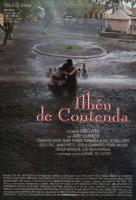Joseph Gai Ramaka
Articles tagged with Joseph Gai Ramaka
Tag Archive
- #NovaOndaCaboVerde
- 25 de abril
- acting
- African Americans
- African lands
- Amazónia
- América
- angolan art
- artes performativas
- artistic movements
- artivism
- Artur Nunes
- artworks
- association tchiweka de documentation
- Berlin
- Biennial Conference Network Afroeuropeans:
- black film festival
- BLM
- bodies
- Cameroon
- capital
- Ceramics
- ciberespaço
- Circulations
- civil war
- Claire Andrade-Watkins
- colonial legacies
- coronavirus
- Dakar
- dance show
- David Adjaye
- David Livingstone
- Decolonizing decolonization
- desert
- diálogo
- Djam Neguin
- Doc's Kingdom
- equal rights
- escritor
- estudio
- ethnicity pay gap
- feminism
- Fernando Medina
- Flora Gomes
- forced migration
- fragment
- Fuck'ing Globo
- funeral
- gender
- ghana
- Grão-Pará
- Hip-Hop Tuga
- interculturalidade
- Jean-Michel Basquiat
- jungle
- kriolu
- land-ing
- language diversity
- Latin American music
- literature
- Luso-Tropicalism
- Macau
- Marielle
- migrações
- Mississippi
- morocco
- Museu afro-brasileiro
- My Kaaba is HUMAN Stories.
- nicknames
- Nito Alves
- panafricanismo
- paraíso
- Parangolé
- photography
- Pipas Forjaz
- polish photography
- political riots
- políticas de ação afirmativas
- Portuguese Colonialism
- preforming artists
- pscianálise
- public debate
- racial segregation
- Remittances
- Resgate
- Sado
- social conventions
- Soviet Africa
- Spielart festival
- surname
- Teatro Praga
- Terceira Metade
- The Sudanese Revolution
- University of Coimbra
- urbanism
- utopia
- Viveiros de Castro
- William Kentridge
- World Music
- “Sexual Misconduct in Academia”
 It’s about contesting narratives: not only narratives about Africa, Africans, Capeverdeans, and about our diverse perspectives, but also narratives about what cinema is, and what it can be, who gets to watch and be watched, who gets to speak and be heard. It is slow but necessary work. It is the work of re-inscribing our collective imagination with images that belong to us and that, in turn, transform us, and then the world.
It’s about contesting narratives: not only narratives about Africa, Africans, Capeverdeans, and about our diverse perspectives, but also narratives about what cinema is, and what it can be, who gets to watch and be watched, who gets to speak and be heard. It is slow but necessary work. It is the work of re-inscribing our collective imagination with images that belong to us and that, in turn, transform us, and then the world. 